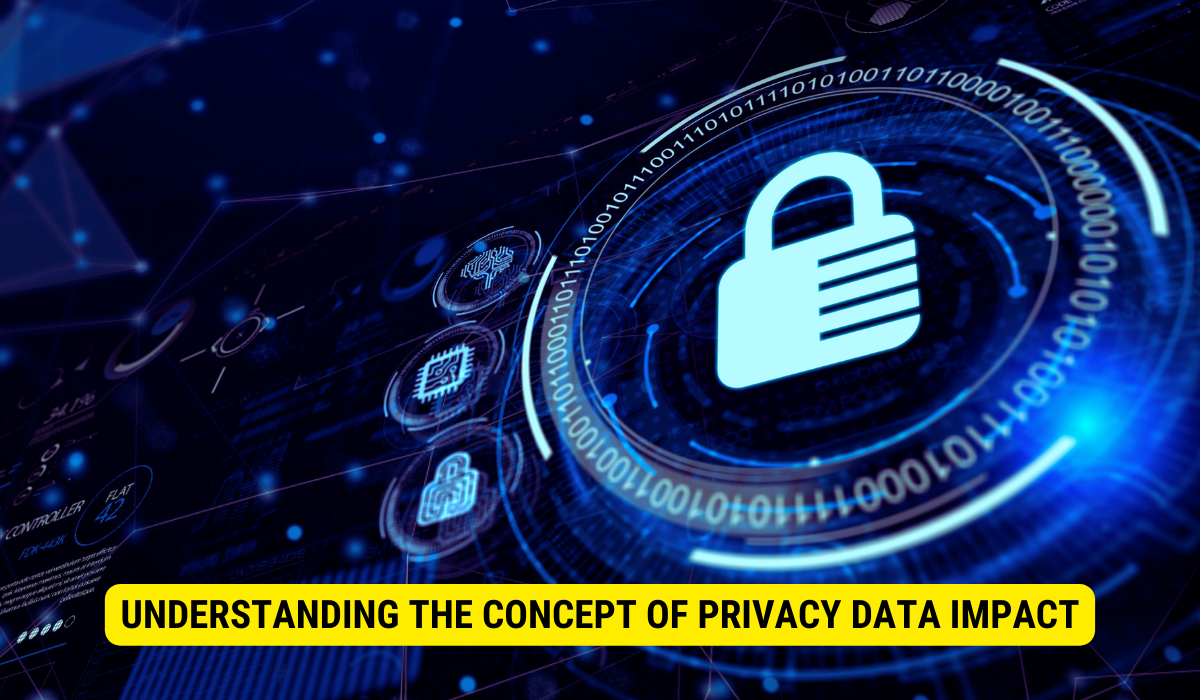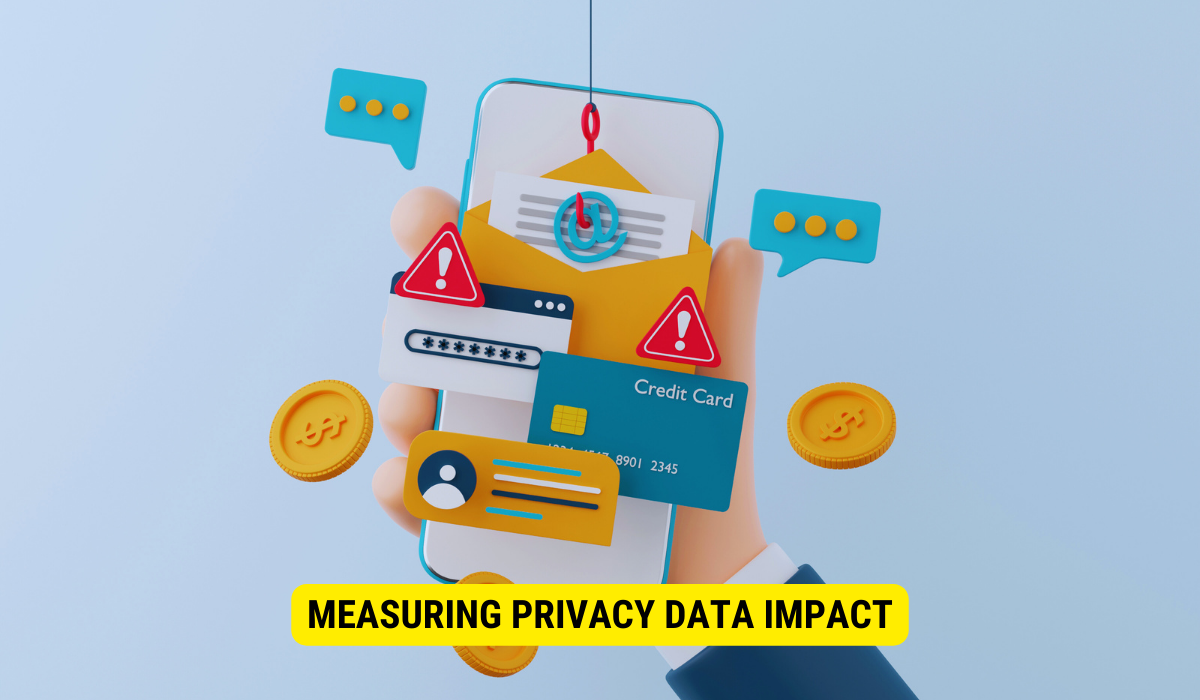Privacy data impact refers to the ramifications resulting from the collection, storage, use, and sharing of personal information of individuals. It underscores the potential risks and benefits tied to the management of such data, emphasizing the importance of understanding its implications in the modern data-driven world.
Privacy data impact refers to the consequences that occur as a result of the collection, storage, use, and disclosure of individuals’ personal information. This concept has gained significant attention in recent years due to the increasing amount of data generated and processed by organizations in various industries. Understanding the impact of privacy data is crucial for businesses and individuals to cross the compound landscape of privacy and data protection.
Understanding the Concept of Privacy Data Impact

Privacy data impact encompasses the potential risks and benefits associated with handling personal information. It involves analyzing the potential harm that can arise from the misuse or mishandling of data and the measures taken to mitigate those risks. Organizations can implement effective data protection strategies that comply with applicable laws and regulations by understanding these risks.
Defining Privacy Data Impact
Privacy data impact can be defined as the effect that the processing of personal information can have on individuals and organizations. It includes tangible and intangible consequences, such as financial loss, reputational damage, loss of trust, and regulatory penalties. The impact can vary depending on the sensitivity and volume of the data and the context in which it is used.
When personal information is mishandled or falls into the wrong hands, the penalties can be severe. Financial loss can occur when sensitive financial data, such as credit card information, is stolen and used for fraud. Reputational damage can result from a data breach that exposes personal information, leading to a loss of trust from customers and stakeholders. Loss of trust can have long-lasting effects on an organization’s relationship with its customers, potentially leading to a decline in sales and revenue. Additionally, regulatory penalties can be imposed on organizations that fail to obey data protection laws, resulting in significant financial consequences.
It is important to note that the impact of privacy data extends beyond the immediate consequences. The long-term effects of a data breach or privacy violation can be far-reaching. Individuals may experience psychological distress, anxiety, and a loss of confidence in the organizations they trusted with their personal information. This can have a lasting impact on their willingness to engage with digital platforms or share personal data in the future.
Importance of Privacy Data Impact
The importance of privacy data impact cannot be overstated. With the increasing digitization of personal information and the rise of data-driven technologies, individuals are becoming more attentive to the potential risks to their privacy. Organizations that fail to protect personal data face legal and regulatory consequences and risk alienating their customers and damaging their reputations.
Privacy data impact is crucial for maintaining customer trust and loyalty. When individuals entrust their personal information to an organization, they expect it to be handled carefully and used only for the intended purposes. Failure to protect personal data can lead to a breach of this trust, resulting in a loss of customers and potential damage to the organization’s brand reputation. In today’s digital age, where data breaches and privacy violations are regularly making headlines, organizations must prioritize privacy data impact to ensure their operations’ long-term success and sustainability.
Furthermore, privacy data impact is closely tied to legal and regulatory compliance. Governments worldwide have known the importance of protecting personal information and have enacted laws and regulations to safeguard individuals’ privacy rights. Organizations that fail to comply with these laws can face significant consequences, including fines and legal action. By understanding privacy data impact, organizations can ensure that they meet their legal obligations and avoid potential legal and financial consequences.
The Role of Privacy Data Impact in Business
In the business world, privacy data impact has become critical across various functions, from marketing to customer relations. Understanding how the processing of personal information can affect individuals is key to building trust and maintaining strong relationships with customers.
Privacy data impact goes beyond legal compliance and extends into ethical business practices. Organizations prioritizing privacy and data protection are more likely to increase the trust and loyalty of their customers. This trust is essential for long-term success and a positive brand reputation.
Privacy Data Impact in Marketing

Marketing departments rely heavily on data to target and personalize their advertising and promotional efforts. However, it is essential to balance the benefits of data-driven marketing with the potential negative impact on individual privacy. Striking the right balance between personalization and data protection is crucial in building customer trust and loyalty.
Organizations can address privacy concerns in marketing by implementing robust data anonymization techniques. By removing personally identifiable information from the data used for targeting, companies can still deliver personalized experiences while respecting individual privacy. Additionally, providing clear opt-out options and giving customers control over the data collected about them can further enhance trust and mitigate privacy concerns.
Furthermore, organizations can leverage privacy data impact as a competitive advantage. By highlighting their commitment to privacy and data protection in their marketing campaigns, companies can differentiate themselves from competitors and attract privacy-conscious customers.
Privacy Data Impact on Customer Relations
Customer relations are another area where privacy data impact plays a significant role. Organizations must handle personal information with care to avoid breaching customer trust. Being transparent about data collection and use, obtaining consent where necessary, and providing individuals with control over their data are vital for maintaining positive customer relationships.
Organizations can go beyond legal requirements and proactively implement privacy-enhancing measures to strengthen customer relations. For example, implementing privacy-by-design principles ensures that privacy considerations are integrated into the development of products and services from the outset. This approach demonstrates a commitment to privacy and can foster customer trust and loyalty.
Moreover, organizations can establish clear and accessible privacy policies that outline how client data is collected, used, and protected. By providing user-friendly information, companies can empower customers to make informed decisions about their privacy and build a sense of transparency and trust.
Lastly, organizations can offer customers options to control their data, such as reviewing and updating their personal information or opting out of certain data processing activities. Organizations can demonstrate respect for privacy and strengthen customer relationships by giving individuals control over their data.
Legal Aspects of Privacy Data Impact
Privacy data impact is closely tied to legal and regulatory frameworks that govern data protection. Organizations must be aware of and adhere to these laws to ensure compliance and avoid costly penalties.
Data Protection Laws and Privacy Impact
Various data protection laws, such as the General Data Protection Regulation (GDPR) in the European Union or the California Consumer Privacy Act (CCPA), launch guidelines for handling personal data. Understanding these laws and their impact on privacy is crucial for organizations operating in jurisdictions where such regulations apply.
Compliance with Privacy Regulations
Compliance with privacy regulations is a legal requirement and an ethical responsibility. Organizations that process personal information must implement appropriate security measures, obtain consent where necessary, and provide persons with the right to access, correct, and delete their data. Failing to comply with these regulations can have severe financial and reputational consequences.
Measuring Privacy Data Impact

Measuring privacy data impact is essential for organizations to understand the potential risks associated with their data processes and make informed decisions on data protection measures.
Tools for Assessing Privacy Data Impact
Various tools and methodologies exist to assess privacy data impact. These tools help organizations identify potential vulnerabilities in their data processes and evaluate the effectiveness of their privacy protection measures. Privacy impact assessments, data protection impact assessments, and privacy audits are commonly used tools.
Key Metrics in Privacy Data Impact Analysis
Key metrics used in privacy data impact analysis include the number of data breaches, the severity, the number of complaints received, and the overall level of customer trust. Tracking these metrics allows organizations to measure their data protection efforts and identify areas for improvement.
Mitigating Negative Privacy Data Impact
Mitigating negative privacy data impact should be a top priority for organizations. By implementing best practices for data privacy management and adopting strategies to reduce privacy data impact, organizations can protect their customers’ trust and their reputation.
Best Practices for Data Privacy Management
Implementing strong data privacy management practices involves creating a robust privacy policy, providing privacy training to employees, conducting regular privacy assessments, and following data minimization and retention policies. By embedding privacy principles into their operations, organizations can ensure that privacy is a core consideration in all activities.
Strategies for Reducing Privacy Data Impact
Reducing privacy data impact requires a proactive approach. Organizations can encrypt sensitive information, pseudonymize data, create anonymized data sets, and implement access controls to limit the potential harm of a data breach. Organizations can significantly decrease the risks associated with privacy data impact by continuously monitoring their data processes and incorporating privacy-enhancing techniques.
Key Takeaways
- Defining Privacy Data Impact: It relates to tangible (like financial loss) and intangible (such as trust erosion) consequences of processing personal data.
- Importance: With growing data-centric technologies, the awareness and significance of privacy data impact are paramount in retaining customer trust and loyalty.
- Business Relevance: The concept has profound implications in business areas like marketing and customer relations, emphasizing trust-building and ethical data practices.
- Legal Implications: Adhering to privacy laws like GDPR or CCPA is a legal necessity and an ethical responsibility for businesses processing personal data.
- Mitigation: Effective practices like encrypting sensitive data, data pseudonymization, and regular monitoring help reduce negative impacts.
FAQs
What does “privacy data impact” mean?
It signifies the outcomes arising from collecting, storing, using, and disclosing personal data.
Why is understanding privacy data impact crucial for businesses?
Businesses must understand the risks to implement effective data protection, maintain customer trust, comply with laws, and avoid potential financial and reputational repercussions.
What can result from the mishandling of personal data?
Consequences include financial loss, reputational damage, trust erosion, and legal penalties.
How does privacy data impact relate to marketing and customer relations?
In marketing, it pertains to balancing personalized campaigns with privacy concerns. Customer relations involves managing personal data transparently and ethically to foster trust.
What are some tools for assessing privacy data impact?
Tools include privacy impact assessments, data protection impact assessments, and privacy audits.
Conclusion
Privacy data impact, reflecting the implications of personal data handling, is essential in today’s digitized world. Businesses must recognize its significance in protecting data, complying with laws, and maintaining a good rapport with customers. Balancing data usage with respect for privacy is the cornerstone for any organization aiming to thrive in this data-driven era.
